Kilimanjaro Food
Taking on the grand adventure of ascending Mt Kilimanjaro isn't for the faint of heart. It demands more than grit and determination; it also requires the right nourishment to fuel your journey. A mere snack won't be enough to get you to Uhuru Peak, the mountain's highest point! At African Scenic Safaris, we understand the vital role that Kilimanjaro Food play in your climb - mentally, physically, and yes, even emotionally.
Ensuring that our climbers receive wholesome and delicious meals isn't just an afterthought for us; it's a key part of our mission. We aim to provide meals that not only satiate your hunger but also leave you feeling invigorated and eager for the next phase of your Kilimanjaro Climb!
Importance Of Food And Water On Kilimanjaro
The Kilimanjaro Food you consume in the mountains serves as the fuel your body needs to tackle the arduous journey. Regardless of the Kilimanjaro Routes you choose, having the right diet can considerably enhance your climbing experience and success rate. Additionally, a good diet is also useful in alleviating the symptoms of any kind of illness, including altitude sickness.
Let’s understand in detail the importance of good food and proper water intake at such high altitudes.
- Constant Source of Energy. The food you consume provides the energy necessary to sustain the demanding Mount Kilimanjaro Climbing. The Meals on Kilimanjaro should be rich in carbohydrates, which are the body's primary energy source.
- Helps Maintain Proper Hydration. Drinking enough water is essential to keep you hydrated and help ward off altitude sickness when climbing the majestic heights of Kilimanjaro.
- Helps Increasing Metabolism. When you're at high altitudes, your metabolic rate increases. This means that your body burns calories faster than usual.
- Therefore, Kilimanjaro Food that you consume should be high in calories to counter the increase in your metabolic rate and provide you with the necessary energy.
- Tackling Altitude Sickness. Proper nutrition and hydration can also aid in reducing the symptoms of mild Kilimanjaro Altitude Sickness. It's a common condition that many climbers experience, and while it's usually not dangerous, it can affect your climbing performance.
What Are The Meals On Mount Kilimanjaro Like With Us?
On a Kilimanjaro Climb, you will be accompanied by a mountain crew that consists of a group of individuals to take care of your daily needs. Our proficient mountain crew include a seasoned cook and his assistant. These highly trained individuals specialize in creating delicious and nutritious Food on Kilimanjaro Climb.
Our unique meal plan consists of three solid meals, along with snacks and hot drinks. Here is what Meals on Kilimanjaro comprise:
Breakfast
Energizing breakfast is an essential part of your Kilimanjaro Diet to fuel your journey. Our Kilimanjaro Food Menu for the morning includes:
- Hot oat or millet porridge
- A hearty cooked breakfast - eggs, omelettes, baked beans, sausages, and pancakes
- Toast
- Assortment of cereals
- Fresh fruit, yoghurt, and milk
- Hot beverages like tea, coffee, and hot chocolate
Mid-Morning Snack
To keep you satiated until lunch, we serve hot beverages and biscuits; ideal Snacks for Kilimanjaro climbing.
Lunch
Our approach to lunch on the Kilimanjaro Climbing Route varies per day. On day one, you'll receive a packed lunch to enjoy at leisure.
Packed Lunch
Our typical Kilimanjaro Food Menu for packed lunch contains:
- A hard-boiled egg
- Deliciously cooked chicken
- Flavoursome samosas
- A slice of cheese
- Banana loaf
- Fresh fruits - an apple and a banana
- Small yoghurt and a juice box
Hot Lunch
On the subsequent days of your Kilimanjaro climbing journey, our team prepares a hot lunch. Thanks to our efficient crew who trek ahead to prepare a rejuvenating meal before your arrival. The lunch menu offers a mix of soups, toasts, salads, pancakes, and fresh fruit.
Evening Snack
After reaching the camp, we serve a light pre-dinner snack, featuring hot beverages, popcorn, and biscuits, which are perfect Kilimanjaro Snacks.
Dinner
At the end of an exhilarating day on the Mount Kilimanjaro Climbing expedition, a hearty dinner awaits. The dinner menu changes every night, featuring dishes like spaghetti with a chicken and vegetable topping or beef, potatoes, boiled eggs, and spinach-stuffed avocados.

Quest From The West
January – December 2026
African Scenic Safaris
Climbing
Travel Style
Scenic Trekking, High-Altitude Adventure & Gradual Acclimatisation
Climb Starts
Moshi, Tanzania
Climb Ends
Moshi, Tanzania
Price On Request
Incl Camps & Accommodations

Orbit Kilimanjaro
January – December 2026
African Scenic Safaris
Climbing
Travel Style
Scenic Wilderness Trek & Ultimate Acclimatisation
Climb Starts
Moshi, Tanzania
Climb Ends
Moshi, Tanzania
Price On Request
Incl Camps & Accommodations

Without The Whiskey
January – December 2026
African Scenic Safaris
Climbing
Travel Style
Classic Mountain Trek & High-Altitude Adventure
Climb Starts
Moshi, Tanzania
Climb Ends
Moshi, Tanzania
Price On Request
Incl Camps & Accommodations

Above The African Plains
January – December 2026
African Scenic Safaris
Climbing
Travel Style
Remote Mountain Trek & Scenic Summit Adventure
Climb Starts
Moshi, Tanzania
Climb Ends
Moshi, Tanzania
Price On Request
Incl Camps & Accommodations

Lemosho Climbs
January – December 2026
African Scenic Safaris
Sustainable
Travel Style
Scenic Trekking, High-Altitude Adventure
Climb Starts
Moshi, Tanzania
Climb Ends
Moshi, Tanzania
Price On Request
Incl Camps & Accommodations

Machame Climbs
January – December 2026
African Scenic Safaris
Sustainable
Travel Style
Classic Mountain Trek & High-Altitude Adventure
Climb Starts
Moshi, Tanzania
Climb Ends
Moshi, Tanzania
Price On Request
Incl Camps & Accommodations
01
/ 06
Kilimanjaro Food Sample Menu
This Kilimanjaro Food Sample menu gives the list of the food that we serve for morning meals, lunch, and evening meals, in addition to snack times and drink options on the mountain for a duration of 5 days.
| MEAL |
Day 1 |
Day 2 |
Day 3 |
Day 4 |
Day 5 |
| BREAKFAST |
Toast, Spanish Omelette, Baked Beans, Sausage |
Cereal, Scrambled eggs, Bacon, Toast |
Cereal, Peanut butter & Banana French Toast |
Porridge, Pancakes, Toast, Omelette |
Cereal, French Toast, Baked Beans, Bacon |
| MID-MORNING SNACK |
Papaya, Orange |
Mango, Orange |
Watermelon |
Mango, Orange |
Banana, Orange |
| Coffee, Tea, Water, Hot Chocolate |
| LUNCH |
Leek Soup & Bread |
French Onion Soup & Bread |
Tomato Soup & Bread |
Zucchini Soup & Bread |
Potato Soup & Bread |
| Spaghetti with Meat Sauce |
Fried Chicken, French Fries, Coleslaw |
Hamburgers, French Fries, Eggs |
Ugali, Vegetables, Chicken Drumsticks |
Beef Kebabs, French fries, Coleslaw |
| Mango |
Pineapple |
Fruit Juice |
Fruit Salad |
Banana |
| Coffee, Tea, Water, Hot Chocolate |
| SNACKS |
Muffins |
Cashews, Popcorn |
Avocado Toast |
Peanuts, Cookies |
Cashews, Popcorn |
| Coffee, Tea, Water, Hot Chocolate |
| DINNER |
Zucchini Soup & Bread |
Squash Soup & Bread |
Cucumber Soup & Bread |
Vegetable Soup & Bread |
Carrot Soup & Bread |
| Chicken Curry with Rice, Vegetables, Green Salad |
Pasta with Meat Balls, Vegetable Pizza |
Steak with Mashed Potatoes, Green Salad |
Beef Curry with Rice, Banana Stew, Green Salad |
Spaghetti with Tomato Sauce |
| Fruit Salad |
Pineapple Flambee |
Papaya Mousse |
Tiramisu |
Chocolate Mousse |
| Coffee, Tea, Water, Hot Chocolate |
Key Heights – Our commitment to providing exceptional Food on Kilimanjaro Climb guarantees a memorable gastronomic experience to accompany your adventure. Check out our Kilimanjaro Food Price List as you select your perfect Kilimanjaro Climbing Packages for a wonderful journey.
Water On Kilimanjaro
Water on Kilimanjaro is as vital as the Kilimanjaro Food you consume during your ascent. The mountain staff usually gathers water from local streams and purifies it using tablets. This may slightly alter its taste.
Staying hydrated plays, a critical role in your Mount Kilimanjaro Climbing experience. It's recommended that you drink at least three litres of water daily during the climb. If flavour infusions help you to consume that much water, by all means, use them!
Please remember that you'll be responsible for carrying your drinking water during the daily treks. That's why it's advisable to bring two water containers:
- A hydration pack or water bladder, ideally integrated into your daypack and equipped with a convenient drinking hose.
- A leak-proof water bottle that can hold a litre of water.
Balancing your Kilimanjaro Daypack is essential, so distribute the weight evenly by placing water bottles on both sides. You will need a water bottle in addition to a bladder because, on summit day, the bladder can freeze, leaving you without water.
To prevent your water bottle from freezing, you can put it in a sock and keep it close to your body. Another helpful tip is to store the bottle upside down.
Refer to our Kilimanjaro Packing List for more information on what other similar items you can carry along to enhance your Mount Kilimanjaro experience.
Carbohydrate Requirements
Carbohydrates are essential for endurance, especially on a demanding journey like Climbing Mount Kilimanjaro. The role of carbohydrates intake in the diet includes:
- They replenish muscle glycogen
- Protect against muscle deterioration
- Also, they require less oxygen for metabolism.
The Kilimanjaro Food served during the trek mainly consists of carbohydrates such as rice, pasta, and potatoes. Carbs demand 8-10% less oxygen for metabolism than proteins or fats.
There's evidence suggesting people naturally consume more carbohydrates at high elevations, possibly due to lower oxygen levels. The absorption of proteins and fats significantly decreases at high altitudes, which is why it's suggested to limit their intake.
Therefore, carbohydrates should constitute the most significant portion of your Kilimanjaro Diet, ideally making up 60% or more of your calorie intake.
Our Kilimanjaro Food Menu focuses mainly on high-carb meals to maintain our climber’s performance on the mountain. These carbs are not only an excellent energy source for climbing but also assist in altitude acclimatization.
Studies show that a high-carb diet can mitigate symptoms of acute mountain sickness (AMS), effectively reducing the altitude impact by 1,000 feet at 13,000 feet and 2,000 feet at 17,000 feet. Thus, adhering to the carbohydrate-rich Food on Kilimanjaro Climb can enhance your climbing experience and health.
What Snacks Should I Bring For Kilimanjaro?
While a diverse range of meals and snacks are offered as part of our Kilimanjaro Climbing Packages, bringing a selection of your favourite snacks can be beneficial. They not only act as an energy source but also provide an emotional uplift during demanding stretches of your climb.
Here's a breakdown of the snacking guidelines:
- Ideally, one to two snacks per day should suffice. As you ascend on the chosen Kilimanjaro Routes, you might experience altitude sickness symptoms like nausea and diminished appetite, making excessive snacking unnecessary.
- Snacks serve a dual purpose. They not only supply quick energy but can also offer a morale boost when the climb becomes challenging.
And for more snack ideas, check out the following options:
- Salty Treats. Pack something along the lines of trail mix, salted nuts, or mini pretzels to satisfy those salty cravings.
- Sweet Delights. Options like candy bars or hard candies can be a sweet respite during the climb.
- Dried Fruits. Dried fruits like raisins or mango provide a quick and healthy energy boost.
- Protein Packed. Consider protein bars or jerky for a protein-packed snack.
- Crunchy Biscuits. Biscuits or cookies can be a comforting treat on your climb.
Tip – Ensure to pack your Snacks for Kilimanjaro in resealable, reusable bags, given there is a ban on single-use plastic bags in Tanzania. Organizing your snacks for each day separately can streamline your snacking process during the climb. Remember, your snack collection can make your journey on the Kilimanjaro Climbing Route more enjoyable and tailored to your taste.
What Drinks Should I Pack For Kilimanjaro?
Along with the snacks, you might also like to pack the following drinks for your Kilimanjaro Trek.
- Electrolyte packets such as Gatorade, Nuun, or Rehidrat
- Flavor-enhancing sachets for your water
- Preferred herbal tea bags
This suggestion is due to the water purification process on the mountain, which utilizes tablets and may alter the water's taste slightly. If you find this displeasing, flavour sachets can be a good workaround.
In the evenings, it might be comforting to have your preferred herbal tea or any other drink of your choice.
Elevate every step of your Kilimanjaro journey with nourishing, chef-prepared meals. From energizing breakfasts to hearty dinners, every bite fuels your adventure and turns camp dining into a highlight of the climb.
Tips For Eating & Drinking On Altitude
When undertaking the exciting adventure of Mount Kilimanjaro Climbing, it's essential to keep in mind some valuable tips regarding food and drink intake to ensure a smooth and successful climb.
Consider these important pointers:
- Always ensure cleanliness by washing hands before every meal. This reduces the risk of any gastrointestinal discomfort during the climb.
- Skipping meals isn't advisable. Even if you don't feel hungry, consuming adequate nutrition is crucial to maintaining energy levels.
- A diet rich in carbohydrates is recommended, something that's typically included in your Kilimanjaro Climbing Packages.
- Packing personal snacks from home, your all-time favourites, can add a comforting touch to your snacking routine.
- Hydration is key. Aim to drink a minimum of three litres of water daily.
- Intake of electrolytes can help maintain your body's balance and facilitate recovery after a day's trek.
- Refrain from indulging in alcohol, tobacco or depressant drugs, such as barbiturates, tranquillizers, sleeping pills, and opiates. They can adversely affect your body's acclimatization process to high altitudes.
- Excessive consumption of caffeine should be avoided as it may lead to dehydration.
Snacks To Avoid
Being smart about the snacks you will carry in your daypack will save you a lot of time and energy. Because you don’t want snacks that will spoil, leak or become a disaster in your backpack, hence giving you a tough time on the mountain slopes.
Here we have curated some straightforward guidelines which you can follow while choosing Snacks for Kilimanjaro:
- Select snacks that won't crumble or melt with ease. They'll be getting moved around in your daypack, and the last thing you want to deal with is a stinky mess.
- Choose a variety of snacks. With altitude possibly affecting your taste buds, it's important to have different options to maintain your energy levels.
- Alternatively, you can avoid packing the following kind of snacks.
- Caffeinated snacks. The altitude can already impact your sleep; additional caffeine is unnecessary.
- Alcoholic items. These are not allowed inside the Kilimanjaro National Park.
- Bulky foods. Such as fresh fruits and canned goods, should be avoided. Your Kilimanjaro Food Menualready includes fruits.
- Potential leak hazards. Anything prone to spillage is best left behind.
- Foods that can go bad. Unless it's for the first day, don't bring anything perishable.
Remember, the Meals on Kilimanjaro are designed to provide you with the necessary nutrients. When packing snacks, pick the ones you love eating!
Scenic’s Savvy Tip: – Consider packing extra snacks to share. This can boost team spirit, and sharing a unique treat from your home country can make the climb even more memorable for everyone.
Fresh Food, But How?
Ensuring that climbers on Mount Kilimanjaro have access to fresh and nutritious meals is a crucial task. Now, many of you must be wondering, how do we achieve this during an expedition that can extend beyond a week?
Well! the answer lies in the relentless efforts of our dedicated resupply runners. These highly trained Kilimanjaro Porters boast exceptional physical endurance. They undertake the mission of supplying fresh produce even on the challenging terrains of Kilimanjaro.
For example, during the journey on the Lemosho route, our resupply runners transport fresh provisions to the Karanga Camp. This replenishment usually occurs on the fifth or sixth day of the expedition, providing climbers with fresh ingredients well into their journey.
Thus, our strategy of employing resupply runners ensures that climbers do not have to rely on canned food. Instead, they can enjoy meals made with fresh meat, fruits, and vegetables even while scaling the heights of Kilimanjaro.
Special Note: African Scenic Safaris is also sensitive to climbers' varying dietary needs. Before the Kilimanjaro Climb, we gather information about trekkers' dietary restrictions and preferences. This information is relayed to our ground team, enabling them to make appropriate preparations and shopping plans. Regardless of your Kilimanjaro Diet, we ensure you have meals tailored to your needs while climbing Africa's highest peak.
The Experience You Will Never Forget
Undoubtedly, the Mount Kilimanjaro Climbing adventure is more than just the Kilimanjaro Food you'll enjoy. It's a captivating journey filled with picturesque views, engaging conversations, and personal challenges.
While ascending Kilimanjaro isn't a walk in the park, having the right nutrition and a supportive team, offered in our tailored Mount Kilimanjaro Climbing Packages, can make it a life-changing experience. This trip promises not only memories but profound experiences that stay with you long after you've descended the mountain.
Explore Kilimanjaro Travel Guide
Find essential topics below to help you plan, prepare, and enjoy your Kilimanjaro travel experience fully.
Climb Kilimanjaro With Us
Get ready for a mountain adventure with real advice, smiling guides, and simple help that actually works. We’re with you from start to summit.
Frequently Asked Questions
The best snacks for Climbing Kilimanjaro are those high in energy and easy to carry. Examples include energy bars, dried fruits, nuts, and chocolate. These snacks provide quick energy boosts and are easy to consume on the go.
Drinking water is crucial in Kilimanjaro as it helps prevent dehydration and assists in altitude sickness prevention. Staying hydrated can also help with digestion and energy levels.
Food on a Kilimanjaro hike typically includes a mix of carbohydrates for energy, protein for muscle recovery, and vegetables for vitamins. Menus may include pasta, chicken, soup, fruit, and breakfast cereals.
Yes, vegetarian options are available. The cooks on Kilimanjaro can cater to various dietary requirements, including vegetarian, vegan, and gluten-free diets. Be sure to communicate your dietary needs in advance.
You are allowed to bring your food on the Kilimanjaro Hike, but it's usually not necessary as ample and varied meals are provided. However, if you have specific dietary requirements or favourite snacks, you might want to bring those along.
Typically, three meals are provided each day on Kilimanjaro: breakfast, lunch, and dinner. Snacks are also provided for the hikes between meals.
You should avoid excessive caffeine and alcohol while Climbing Kilimanjaro, as they can exacerbate dehydration. Highly salty or sugary snacks should also be avoided.
Altitude can dull your sense of taste, making food on Kilimanjaro taste blander than usual. Therefore, meals are often well-seasoned to compensate for this effect.
Yes, hot beverages, including tea, coffee, and hot chocolate, are typically provided during meal times and can also be requested during the day.
Meals on Kilimanjaro are prepared by dedicated mountain cooks using fresh ingredients. These meals are usually served in a dining tent or delivered to your sleeping tent during harsh weather.
Simbo Natai, founder of African Scenic Safaris, crafts sustainable, meaningful Tanzanian journeys rooted in his deep local knowledge and passion.
Director





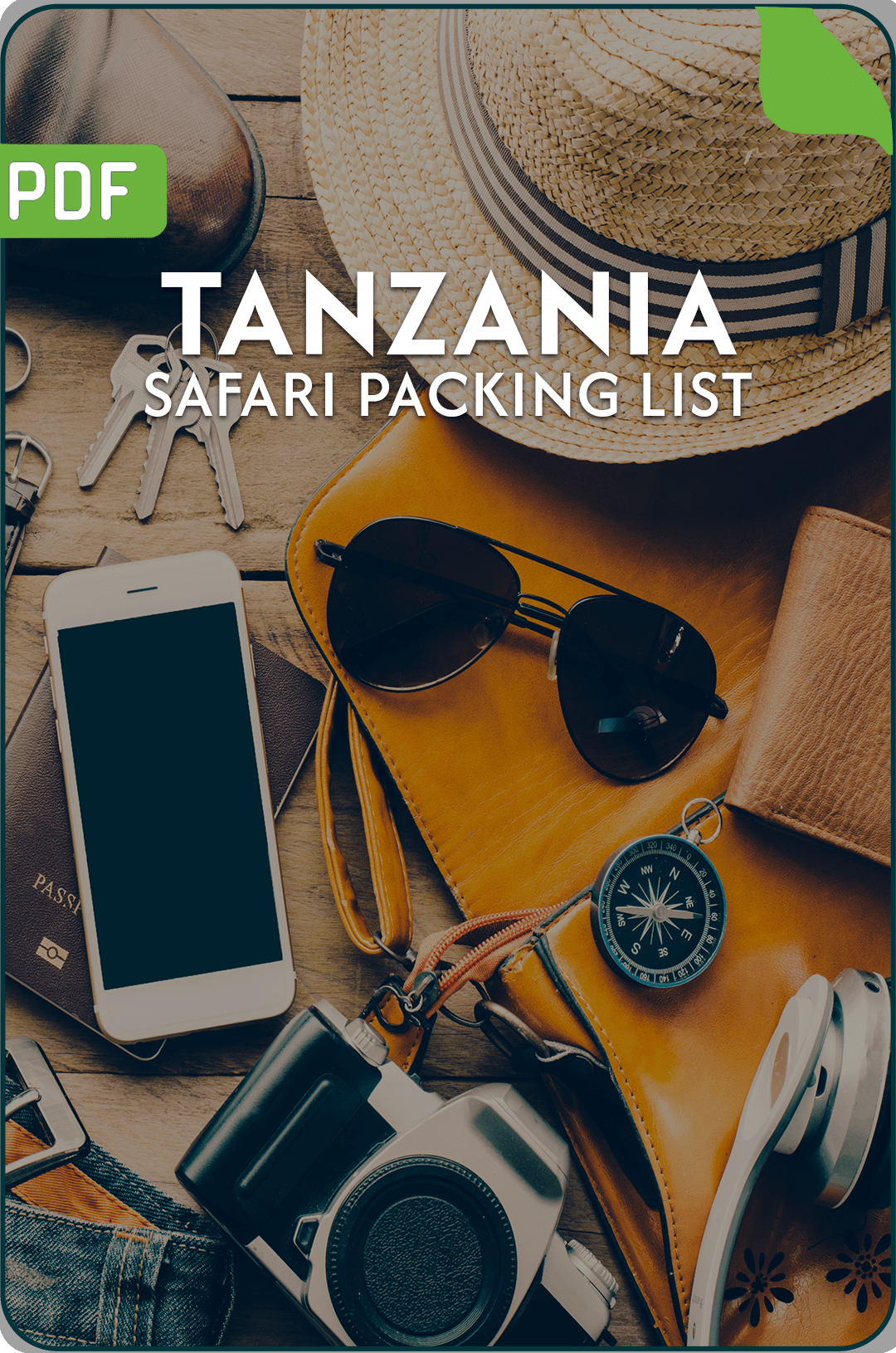
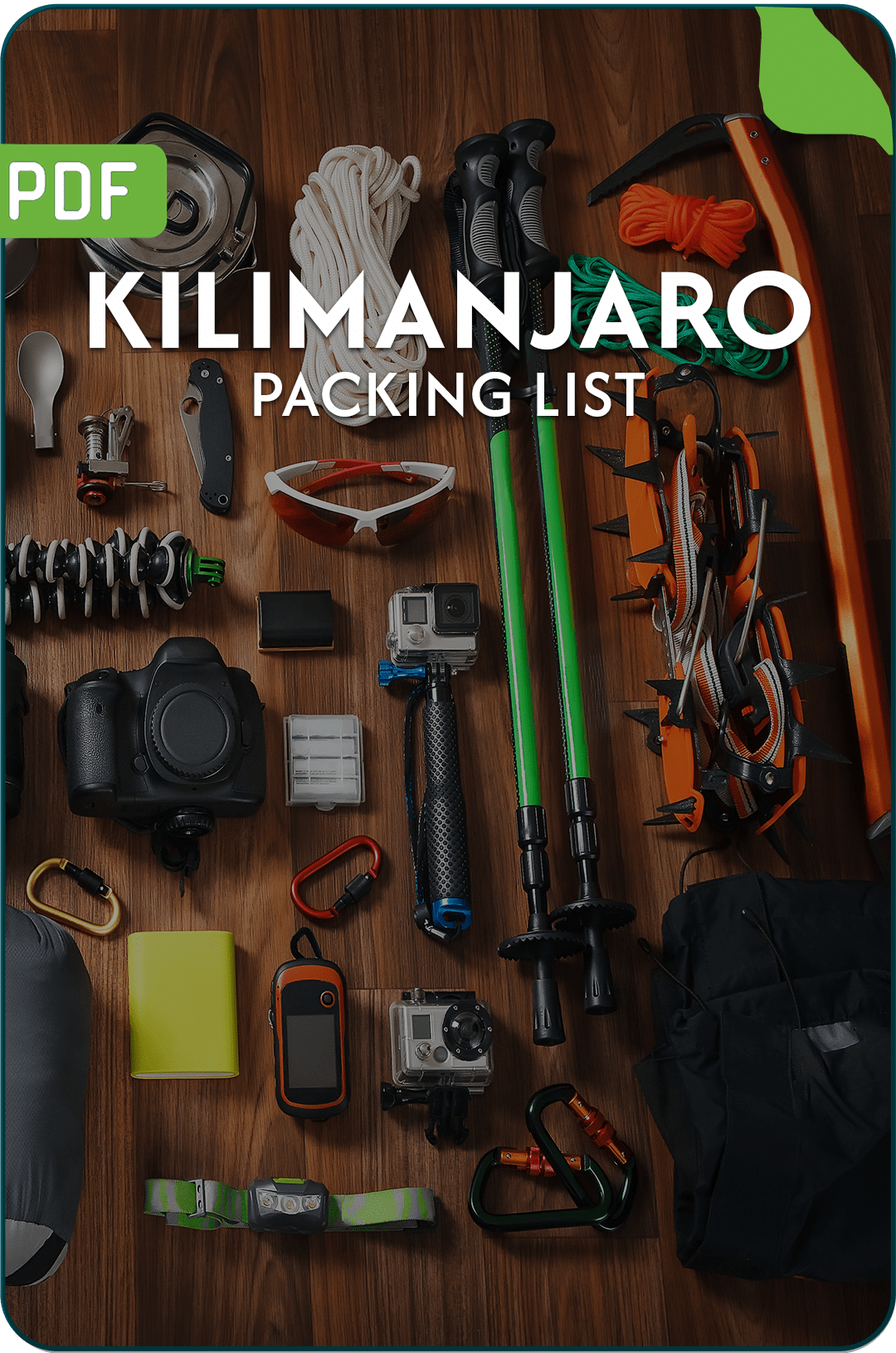
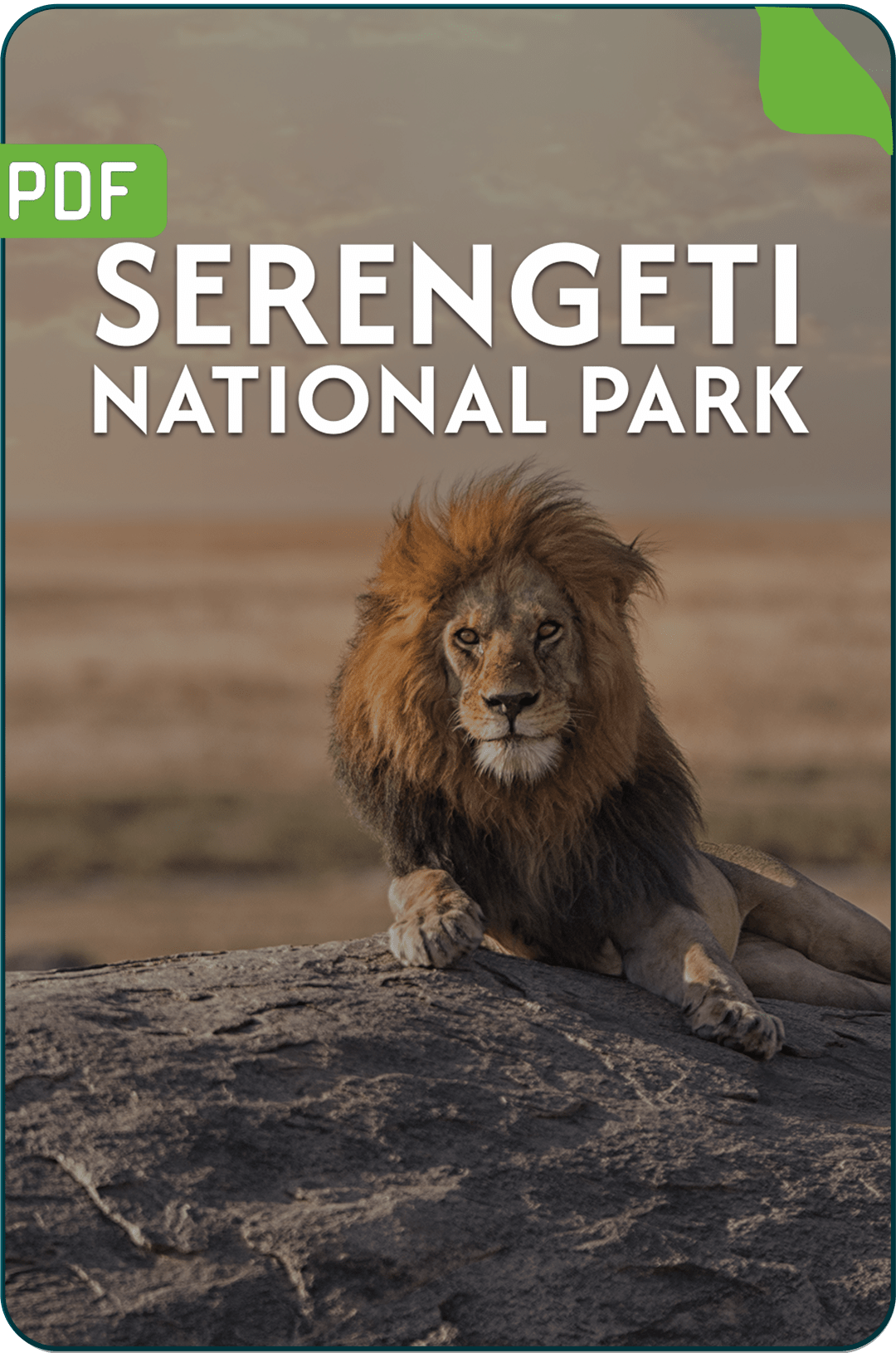
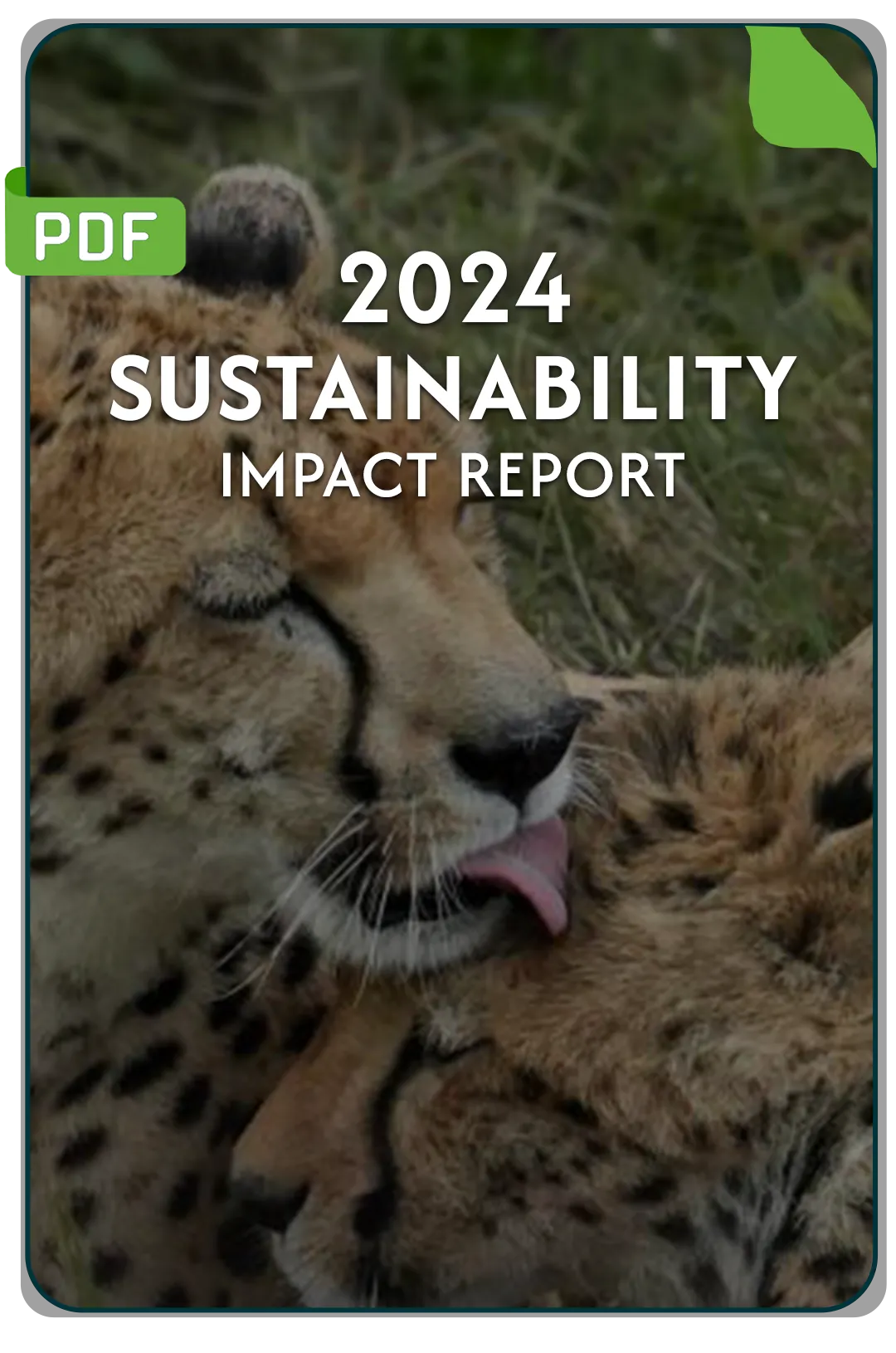
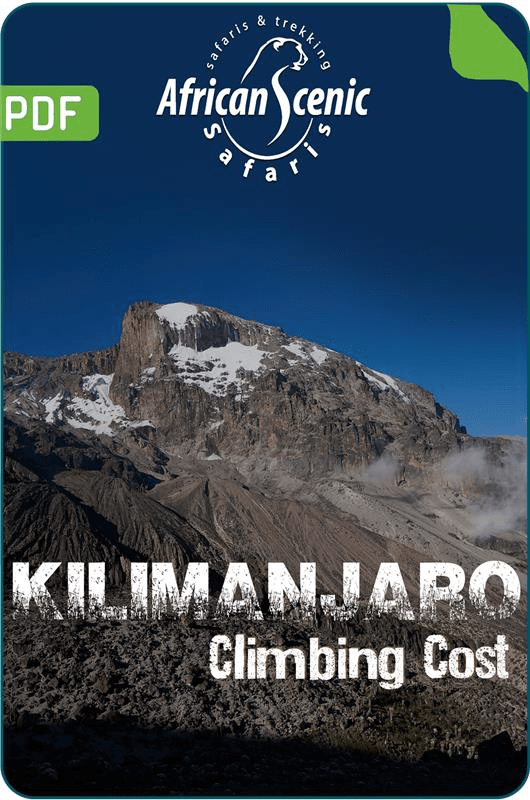





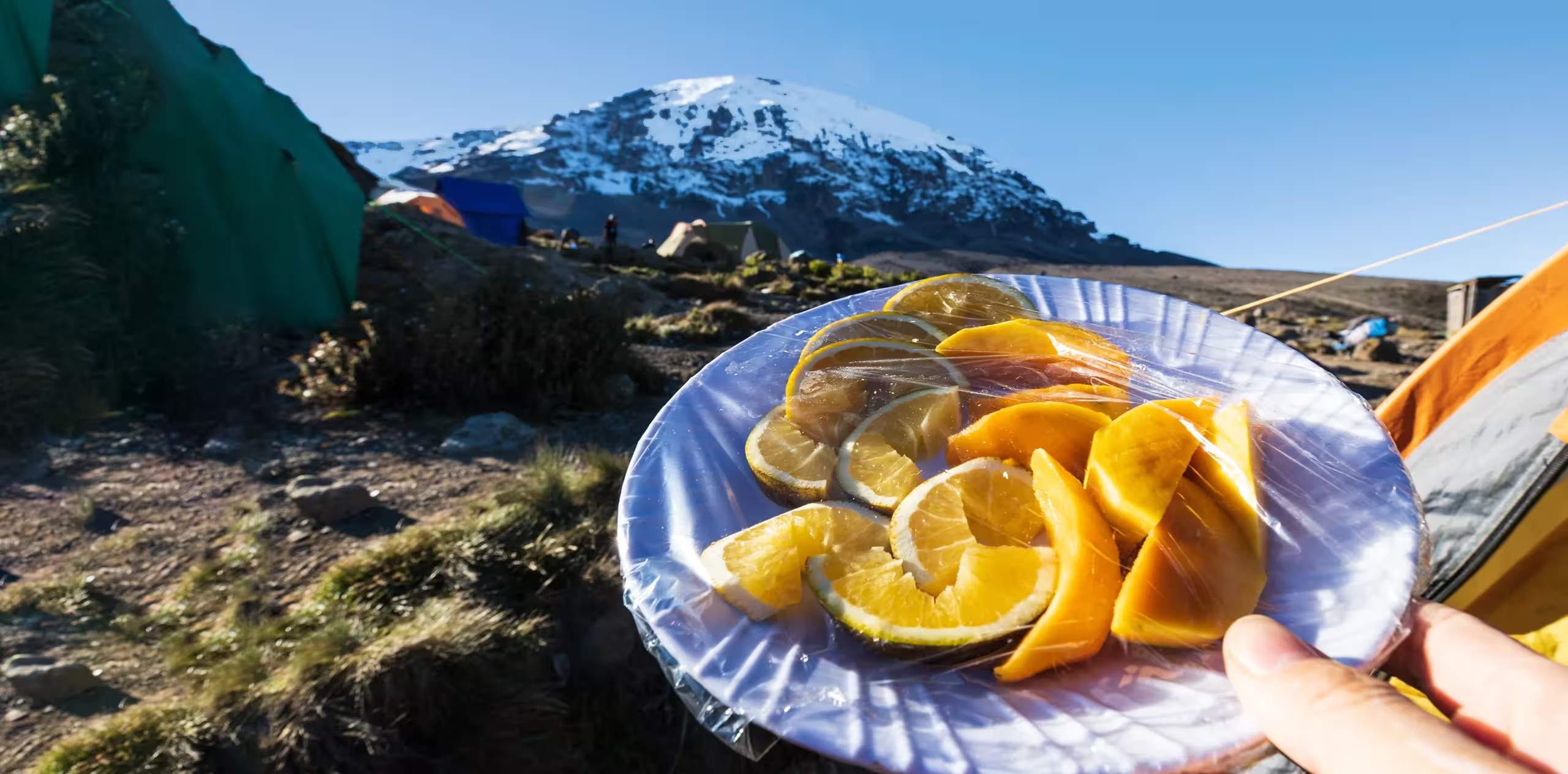
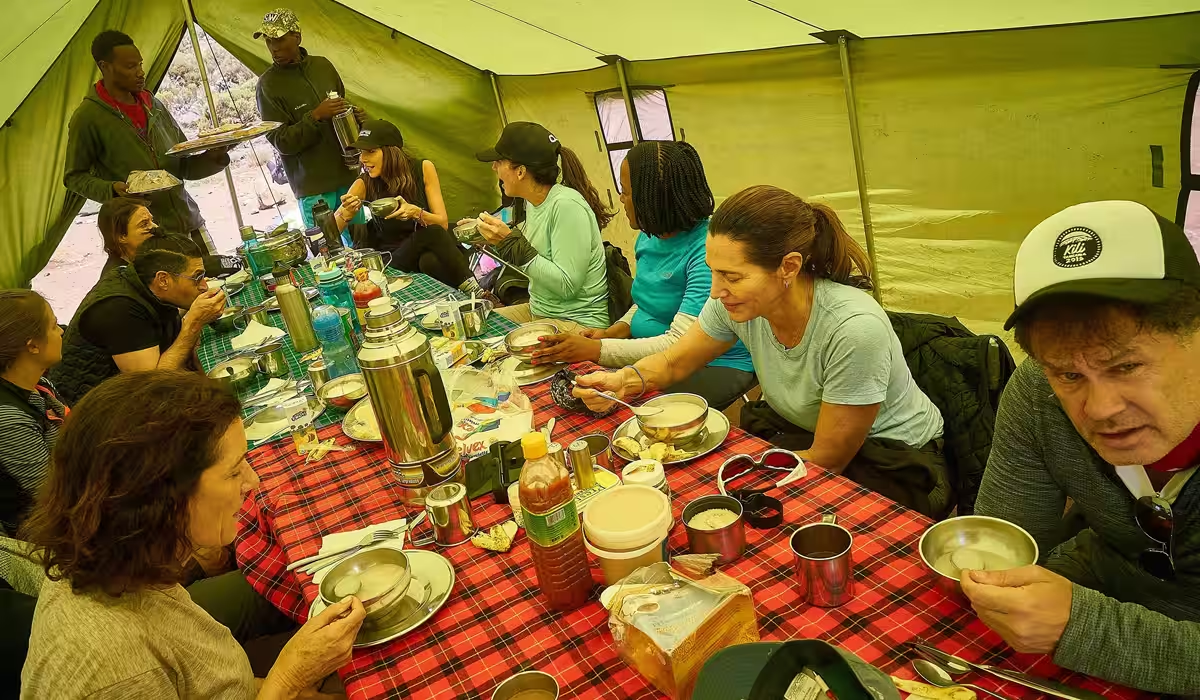
 Quest From The West
Quest From The West
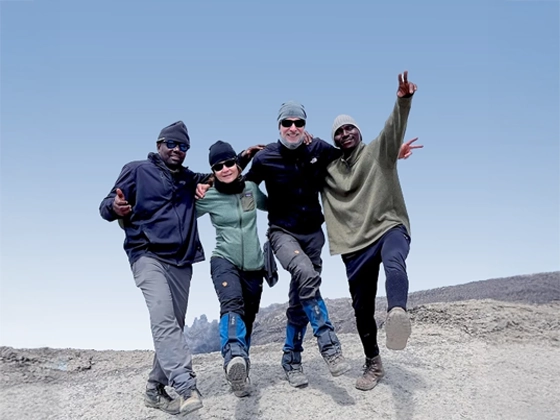
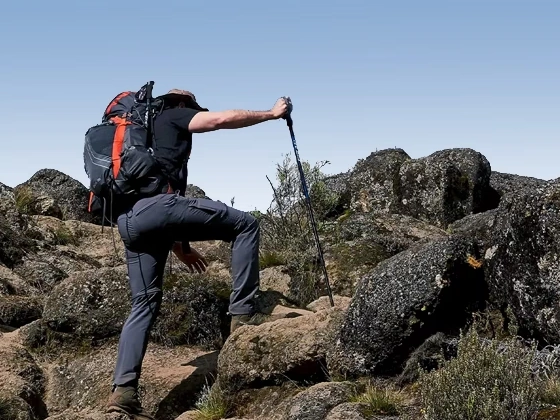
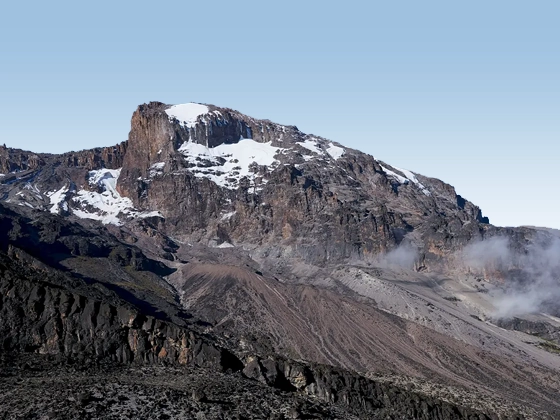
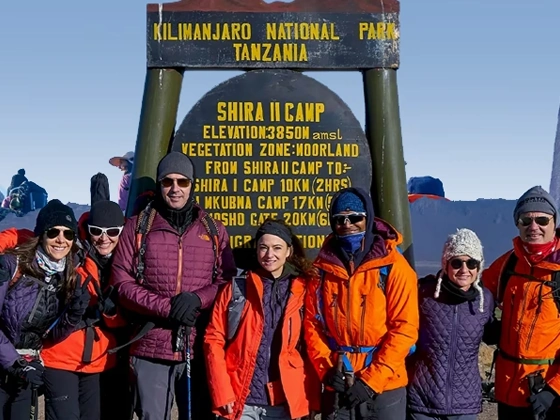
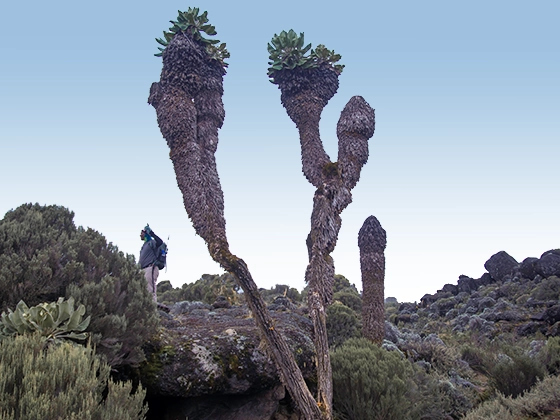
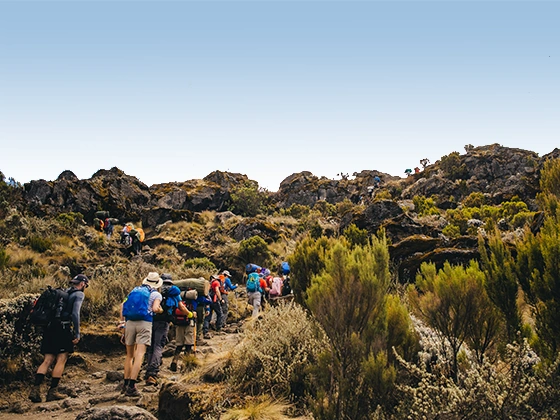
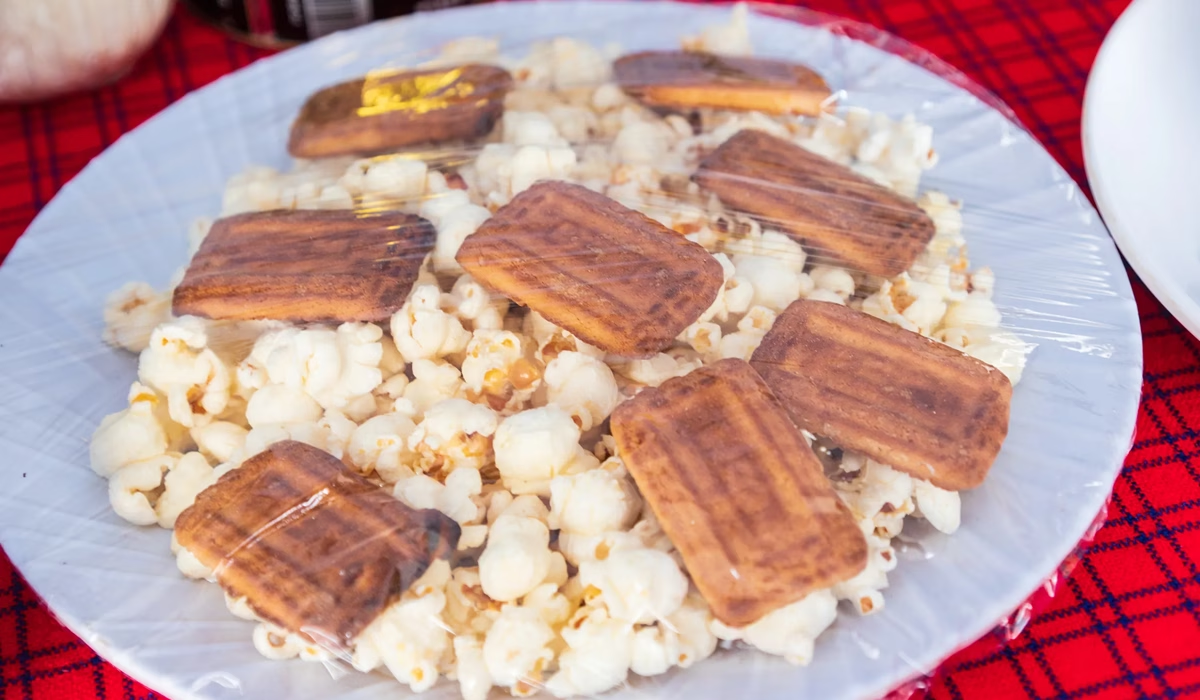



 African Scenic Safaris #1 on TripAdvisor
African Scenic Safaris #1 on TripAdvisor 




